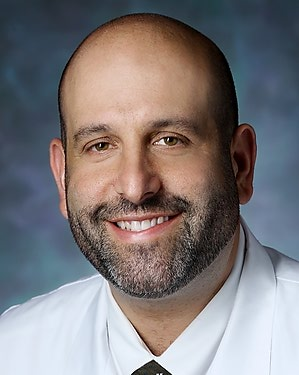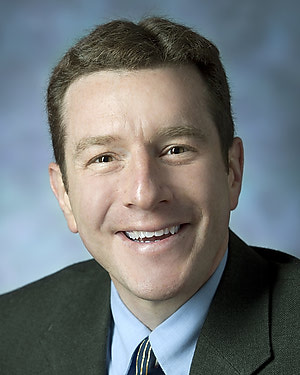Research Lab Results
-
Laboratory of Vestibular NeuroAdaptation
The Laboratory of Vestibular NeuroAdaptation investigates mechanisms of gaze stability in people with loss of vestibular sensation. A bulk of our research investigates motor learning in the vestibulo-ocular reflex (VOR) using different types of error signals. In addition, we investigate the synergistic relationship between the vestibular and saccadic oculomotor systems as trainable strategies for gaze stability. We are particularly interested in developing novel technologies to assess and deliver improved rehabilitation outcomes. We are validating a hand-held computer tablet for assessment of sensorimotor function and participating in a clinical trial comparing traditional vestibular rehabilitation against a device developed in our laboratory that can unilaterally or bilaterally strengthen the VOR. Members of the lab include physical therapists, physicians, engineers, statisticians and post-doctoral fellows. The laboratory is supported by generous grant funding from NASA, the NIH, the DOD and grateful patients -
Lonny Yarmus Lab
Clinical trials conducted in the Lonny Yarmus Lab focus primarily on minimally-invasive diagnostic testing for patients with lung cancer and local therapy options for malignant airway obstructions. We investigate ways to improve the early diagnosis of lung cancer, as well as the treatment of later-stage cancer, using the least invasive methods possible. We are also part of the LIBERATE clinical study for patients who have difficulty breathing and suffer from severe emphysema.
-
Leonard Feldman Lab
Research in the Leonard Feldman Lab is focused on consult medicine, high-value care and medical education, including resident training and online curriculum. Past studies include integrating lessons on respect and courtesy toward patients into the training of residents and the impact of including the cost of medical procedures when residents ordered tests.
-
Lee Bone Lab
Research in the Lee Bone Lab uses community-based participatory approaches to promote health in underserved urban African-American populations. We conduct randomized clinical trials on cardiovascular disease, diabetes and cancer detection and control in order to test the success of community interventions. We focus in particular on making interventions sustainable and on implementing electronic education to improve communication.
-
Laura Hummers Lab
The Laura Hummers Lab participates in a number of clinical trials and clinical investigations at the Scleroderma Center at Johns Hopkins. We have a particular interest in the predictors of outcomes in scleroderma. We’ve established a prospective cohort of 300 scleroderma patients to identify incident vascular outcomes in the hopes of identifying new biomarkers for disease development and progression. -
Outcomes After Critical Illness and Surgery Group
The Outcomes After Critical Illness and Surgery Group is focused on understanding and improving patient outcomes after critical illness and surgery. Research projects include improving long-term outcomes research for acute respiratory distress syndrome/acute respiratory failure (ARDS/ARF) patients; examining the long-term outcomes for acute lung injury/acute respiratory distress syndrome (ALI/ARDS) patients; and evaluating the effects of lower tidal volume ventilation and other aspects of critical illness and ICU care on the long-term physical and mental health outcomes of ALI/ARDS patients. -
Fu Lab
The Fu Lab is a basic research lab that studies zinc transport, with a particular focus on which step in the zinc transport process may be modulated and how. Dr. Fu's lab uses parallel cell biology and proteomic approaches to understand how these physiochemical principles are applied to mammalian zinc transporters and integrated to the physiology of pancreatic beta cells. This research has implications for understanding how zinc transport is related to diabetes and insulin intake. -
Felipe Andrade Laboratory
Research in the laboratory of Felipe Andrade, M.D., Ph.D., focuses on the mechanisms of systemic autoimmune diseases, particularly as they relate to the role of cytotoxic granule proteases in autoimmunity and viral clearance, mechanisms of autoantigen citrullination and pathways that control immune effector functions in autoimmune diseases. We currently focus on two principal areas: (1) defining the mechanisms that generate citrullinated autoantigens in vivo in rheumatoid arthritis and (2) understanding the pathways that control the activity of the peptidylarginine deiminase (PAD) enzymes in human neutrophils.
-
Frederick Anokye-Danso Lab
The Frederick Anokye-Danso Lab investigates the biological pathways at work in the separation of human pluripotent stem cells into adipocytes and pancreatic beta cells. We focus in particular on determinant factors of obesity and metabolic dysfunction, such as the P72R polymorphism of p53. We also conduct research on the reprogramming of somatic cells into pluripotent stem cells using miRNAs.
-
Ivor Berkowitz Lab
Research in the Ivor Berkowitz Lab targets pediatric critical care medicine. We are particularly interested in the pathophysiology behind the cerebrovascular dysfunction that occurs in bacterial meningitis as well as the anesthetic and perioperative complications of patients with dwarfing syndromes.
Principal Investigator
Department




